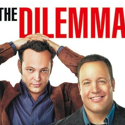Last week, I published my thoughts on Software Craftsmanship and WordPress. For what it’s worth, that particular post was one that I’d been thinking about for quite some time, I just never took the time to sit down and actually draft my thoughts on it.
The post resulted in a short, but interesting discussion both in the comments and on Twitter, but one comment in particular really got me thinking more about the topic.
Seeing the terms “WordPress” and “software craftsmanship” in the same sentence makes me LMAO. I just downloaded 3.5.1 to see if it was as bad as I remember. It’s worse. I remain convinced that WordPress was developed wholly by monkeys randomly hitting keys on a keyboard.
The point of this post is not to go back and forth on whether or not the author is correct in his statements. Instead, the comment got me thinking about craftsmanship in the context of the work we do on top of pre-existing systems regardless of the language, platform, and/or framework that you’re using.
Specifically, it got me thinking more about quality WordPress products and projects and whether or not form follows foundation.
Continue reading





